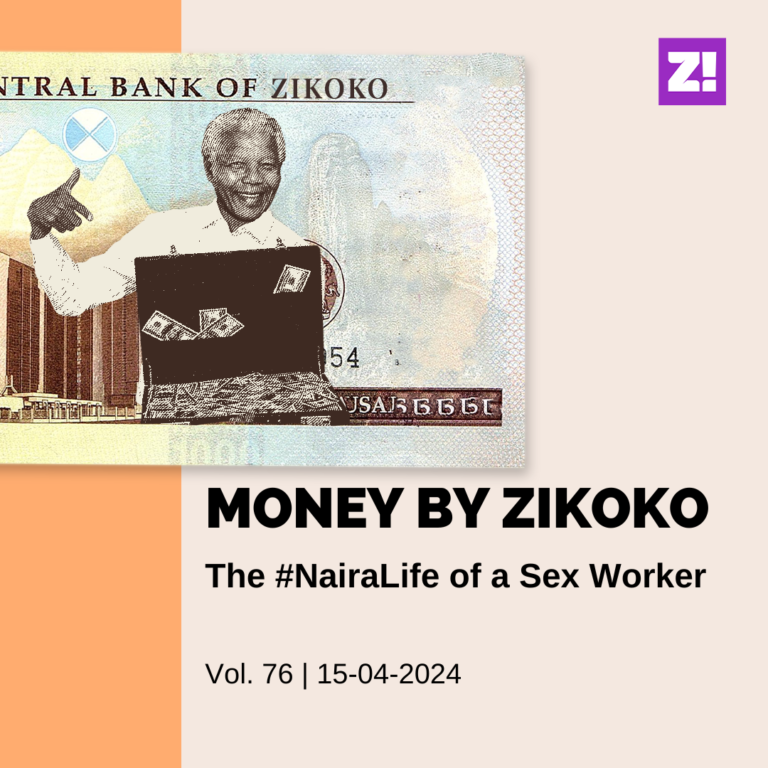Students in Nigerian universities have stories to tell, but hardly anyone to tell them to. For our weekly series, Aluta and Chill, we are putting the spotlight on these students and their various campus experiences.
Adetona Maryam is a 500 level student of Medicine and Surgery. She talks about her lingering interest in the literary arts and how she’s at the forefront of building the Ilorin literary scene.

Tell me how you got into school
I got into University of Ilorin in 2014, but it wasn’t the first time I’d tried to get into the university. In 2013, I wrote UTME and applied to study Medicine and Surgery at University of Ibadan, but I didn’t get it. They offered me Chemistry, which I accepted, but eventually deferred. Instead, I enrolled in an A-Levels school. As a contingency plan, I wrote UTME again the following year. I applied to University of Ilorin this time, went for Medicine again, and I got it this time. That was it.
It seems like your heart was pretty set on studying medicine and surgery, what was the appeal?
I don’t know, but medicine wasn’t the first career choice I made. At some point, I wanted to be a lawyer, then a civil engineer. It was during the end of my secondary school days that medicine got in the mix. It was the first time I got fascinated by the biology of the human body, and medicine was one of the ways I could explore how the human body works and also make a living out of it.
Interesting. How quickly did you settle in school?
It didn’t happen instantly. I don’t make friends easily. I was so lonely in my first year. I was used to the friends I’d made during my A-Levels, and none of them were in Unilorin. Also, I didn’t get hostel accommodation, so I lived off-campus – alone in a room with a stash of Korean movies to keep me company.

Korean movies?
Yes! They were the only thing I watched at that point. I even tried to cook ramen noodles. I would dump noodles into my electric kettle, add water and the spices. I ate from the kettle as I watched the movies. I can’t believe myself when I think about it now, but yes, that happened.
Lmao. So, when did you start to settle in?
I’m not sure. It just kind of happened. My grades were pretty good even when I hadn’t gotten the hang of things. I think that was because most of what I was doing in 100 level was what I’d already done during my A-Level days, so they were easy to break down and understand. Anyway, I finished 100 level and moved from the main campus to medical school.
Was it a big change for you?
In a way, yes. Not to sound like a broken record, but med school is hard, especially when you realise that the amount of work you put in is not proportional to your result. I learned this after my first exams in med school. I passed, but it wasn’t as good as I thought it would be. Subsequently, all my time was invested in making sure that I made and maintained a good grade. But sometime in 300 level, I thought it was time to do something else that appealed to me – the literary arts.
Oh! What sparked your interest in the arts?
I’ve always been a reader and lover of the arts. Growing up, I found solace in reading and I never lost the drive to immerse myself in everything arts. So, when I eventually settled into school, it was time to take it up again.
It started with a writing group I joined when I was in 300 level where everyone workshopped each other’s work. At the time, I didn’t even think that there could be more. Not until I went to an open mic in Lagos. Sometime after that, I attended Dami Ajayi’s masterclass on poetry and his book reading. I realised that everywhere was popping with literary communities and events, but there was hardly anything in Ilorin. That had to change.
Why did you feel that way?
I needed a space where everyone could come to and express themselves. I mean, I could always go to Ibadan or Lagos to do that, but it had to happen in Ilorin too.
Fair enough. How did it go from there?
Actually, I had spoken to a couple of friends about having this kind of community in Ilorin before I went for these events, but med school became overwhelming, so I ditched the idea. And it seemed like that was going to be the end of it until I attended Dami Ajayi’s book reading. Now, Dami is a medical doctor and an author, and that kind of changed my perspective about how I saw the two things. I realised that I could have both. Luckily, I met someone at the book reading who felt the same way too, so that confirmed that people wanted this thing. I came back to Ilorin determined to make it happen.

What was the plan?
The original plan was to organise a monthly open mic session, but I felt that this needed to be built around a concrete structure to draw more people in. I hit some of the people I’d talked to up, we set up a couple of meetings where we laid down the structure. That was the first step.
What structure did you decide on?
We agreed to create a book club where we would meet monthly to discuss books and share whatever we were working on with others. We also decided to make it open for anyone to attend our literary evenings. We launched ‘The Shade Book Club’ in September 2019.
Sweet. What was the response like when you kicked off the book club?
It was okay. Quite a number of people wanted to be a part of the club. At the moment, we have about 20 members. I had to bring the registration link down because I wanted it to be as intimate as possible and I also wanted every member to be active.
The club is about four months old now, has there been any highlight?
Oh, yes! We had our first open mic session in December. We sent the invite out, asking anyone who wanted to perform their work to come out. The response was crazy and people actually turned up. I didn’t see that coming. The venue was filled to capacity. The quality of performances was also great. I was just buzzing by the sheer success of it. And the best part of it was that people reached out to us asking if another one could be organised. It really felt (and still feels) like we are onto something.

It’s interesting that it’s taking shape and you have a highlight already, but what’s the most challenging thing about running the club?
That has to be the struggle of balancing it with my studies. It’s lowkey a full-time job and academics is a full-time job in itself. I’m still trying to figure out the best way to do both, but I believe I’m not doing badly.
Basically, I use a to-do list to plan my day. That’s it. I try to finish the book club tasks as soon as I can. Then it’s back to my academics.
Since the time you became active in the Ilorin literary scene, have you noticed any change?
I think the Ilorin literary scene has improved. People have come to meet us to ask about the possibility of the book club organising book readings for them. The scene is growing and people are here for it. A lot of similar communities are now springing up in the town and bringing their best game on, and I couldn’t be happier about it. It’s overwhelming how much success we’ve recorded in such a short time, really, and I feel like we can only make it better.
Sweet. How has running a book club changed you in a way that med school couldn’t have?
For starters, I’ve met a lot of good and smart people. In fact, I met my boyfriend at a book reading. My people’s management and leadership skills have improved. This community is the greatest gift I’ve gotten from this school. The goal now is to have a Kwara Arts and Book festival — there’s no concrete plan for it yet, but I really want it.
What are you looking forward to now?
That’s a tough one. I mean, I’m eventually going to leave this school, but I want to make sure that this club and everything that goes with it doesn’t end with me. I want this club to be a point of reference for literary arts in Ilorin. And I think it’s on its way there.

Are you currently studying in Nigeria or elsewhere and have a story to share about your life in school? Please take a minute to fill this form and we will reach out to you ASAP.
Can’t get enough Aluta and Chill? Check back every Thursday at noon for a new episode. Find other stories in the series here.




